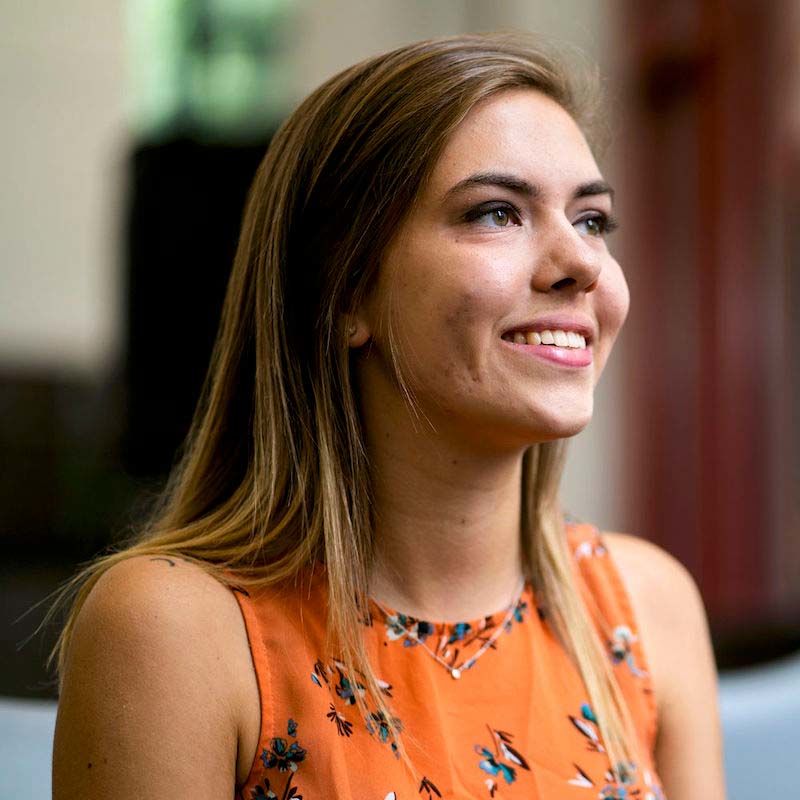Learn more about our MSW
Your future as a change-maker starts here.
Are you passionate about making a real difference in the world? At Temple University’s College of Public Health, our Master of Social Work (MSW) program empowers you to drive change and improve lives on a grand scale. Join us and become a catalyst for social justice, tackling critical issues like racial injustice, inequality, health disparities, and economic instability.
Why Choose Our MSW Program?
-
Flexible Learning Options: Whether you’re looking to study full-time, part-time, or through our accelerated track (for recent BSW graduates), our program fits your schedule and lifestyle.
-
On-Campus or Online: Choose the learning format that works best for you. Our 60-credit program is designed to accommodate both on-campus and fully online students, ensuring you receive a top-notch education wherever you are.
-
Comprehensive Preparation: We equip you to excel in the field and pass the LSW licensure exam with confidence. Our curriculum, combined with access to over 300 fieldwork partners, ensures you gain hands-on experience and build a robust professional network.
-
No GRE Required: Focus on what truly matters—your passion for social work and your commitment to making a difference.
-
Personalize Your Path: Tailor your education to match your career aspirations. Whether you're drawn to clinical work with individuals and families or excited to influence communities, organizations, and policy, our concentrations allow you to specialize in areas that ignite your passion.
At Temple University, you’re not just earning a degree—you’re joining a vibrant community of dedicated professionals and a powerful alumni network committed to creating meaningful impact. Ready to take the next step in your journey? Apply now and start building a better world with us.
MSW concentrations
Clinical Practice with Individuals and Families
Train to work as a clinical therapist with individuals, families and groups in both outpatient and inpatient settings, preparing for a career in areas like case management, hospital discharge planning, service brokering and private practice.
Macro Practice in Organizations, Communities and Policy Arenas
Learn to lead nonprofit and governmental agencies, or focus on community organizing or policy. You will develop management skills and learn to promote systemic change in institutions, from national agencies to neighborhood organizations.
Meet our students

Pursuing dual master’s degrees in social work and public health at Temple’s College of Public Health, Julia Trout feels she has found her calling. Searching for a specialty as an undergraduate in the college, she had explored pediatric nursing and sampled other health-related fields. Along the way, her father became ill with leukemia, and as a caregiver she became intimately attuned to the mental health aspects of cancer and oncology.
“It was amazing to see how much that mental side is affected by cancer,” she says. “People expect physical changes, but on the flip side, this huge emotional wall goes up. It’s a mental game, and I witnessed so many people help my dad get through that and it was like, ‘this is it, this is where I’m meant to be.’”
Now, Trout is studying to become an oncology social worker. She hopes to land in an oncology-related clinical setting, working one-on-one with patients and caregivers, with the goal of increasing mental health-related quality of life throughout their journeys. Outside of school, Trout works with Camp Kesem, a nationwide organization that provides free week-long camps to adolescent children whose families have been impacted by cancer.
Her personal experience with the issue, she says, “was the hardest and most devastating experience I’ve had to go through. But I feel like to some extent it was a huge blessing in disguise. It led me in a whole new direction and ultimately it’s where I know I belong.”
Trout appreciates the variety of programs she was able to explore in the college. “The diversity of programs within the College of Public Health allowed me to investigate several possibilities until I arrived at my true passion,” she says.

